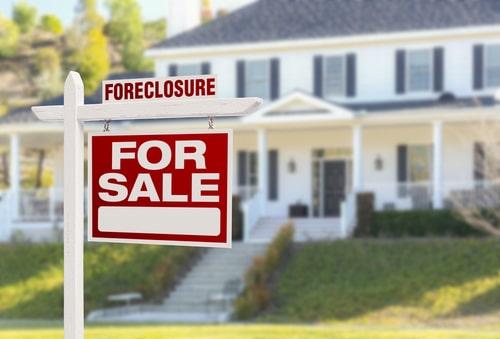1512 Artaius Parkway, Suite 300,
Libertyville, IL 60048
Call for a FREE Phone Consultation
847-549-0000
Video Consultations Also Available
 Spanish
SpanishServing Clients Across 7 Illinois Locations
Understanding How Foreclosure Works in Illinois
 If you are struggling to make your mortgage payments, the threat of losing your home can be a terrifying thought. Once a mortgage is in default, the lender can sue to have the right to sell the property in what is known as a foreclosure sale. In 2021, lenders initiated more than 92,000 foreclosures—the lowest number in many years. In fact, 2009 saw more than 2 million foreclosures initiated by lenders looking to resolve defaulted mortgages. If you are facing the potential foreclosure of your home, you should be sure to understand the procedures that will be followed and the legal options available to you.
If you are struggling to make your mortgage payments, the threat of losing your home can be a terrifying thought. Once a mortgage is in default, the lender can sue to have the right to sell the property in what is known as a foreclosure sale. In 2021, lenders initiated more than 92,000 foreclosures—the lowest number in many years. In fact, 2009 saw more than 2 million foreclosures initiated by lenders looking to resolve defaulted mortgages. If you are facing the potential foreclosure of your home, you should be sure to understand the procedures that will be followed and the legal options available to you.
The Foreclosure Process
When a mortgage has not been paid for several months and has fallen into default, a lawyer from the lending institution may begin a lawsuit by filing a complaint in court. After that, a summons and complaint are delivered by a process server or a sheriff. The summons is a notification of a court hearing, and it will specify when and where the hearing will be held. Within 30 days of receiving the summons, you must either file an answer and court appearance or a motion of your own.
During the hearing, the bank’s lawyer will update the assigned judge regarding the status of the property. At this time, you may be able to request mediation, during which you and a representative of the lender will meet with a mutual third party to discuss loss mitigation. This means that options other than foreclosure can be discussed, and you may be able to work out an arrangement that will allow you to stay in the home through solutions such as a repayment plan or loan modification. There are also options in which you may be able to sell the home without going into foreclosure.
Following the foreclosure hearing, a court date for Motion for Judgment and Sale will be set. If you are working with the bank to reach an agreement, then you may be able to ask for additional time from the court to respond to this motion. During this time, there is a 90-day period in which it may still be possible to negotiate with the bank or sell the home in a non-foreclosure sale.
If the 90-day period ends with no further action, the home may be put up for auction. If the home is sold, then a court date will be set for the judge to approve the final sale of the property. If the sale is approved, then you will face eviction from the property, and unless a final appeal is put forward, you will have 30 days to vacate the property. Extensions may still be filed at this time.
Contact an Illinois Foreclosure Defense Lawyer
Foreclosure can be a living nightmare for a family. If you are facing foreclosure, you should work with a skilled attorney to negotiate with your lender and determine if you will be able to keep your family home. Contact an experienced Lake County foreclosure attorney at Newland & Newland, LLP to get the help you need today. Call 847-549-0000 for a free consultation.
Sources:
https://www.debt.org/real-estate/foreclosure-defense/
https://www.attomdata.com/news/market-trends/foreclosures/attom-year-end-2021-u-s-foreclosure-market-report/
 Stop Foreclosure
Stop Foreclosure
















